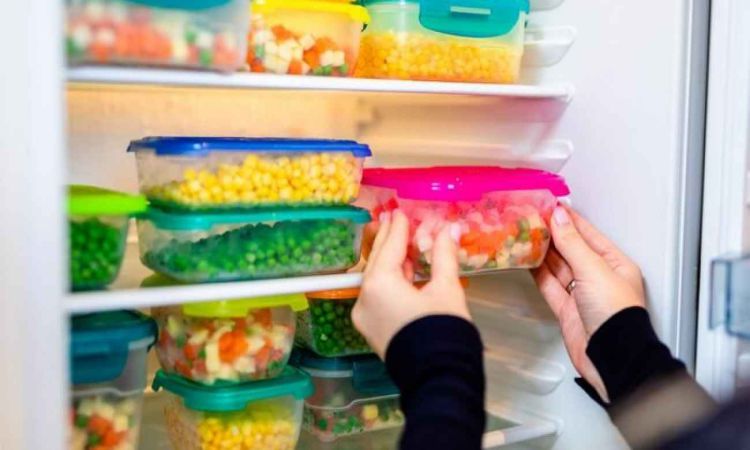 Food storage should not be taken lightly, especially nowadays that health is everyone’s top priority. How your food is stored will determine its overall quality and whether or not it will be safe to consume.
Food storage should not be taken lightly, especially nowadays that health is everyone’s top priority. How your food is stored will determine its overall quality and whether or not it will be safe to consume.
Whether you’re in the food business or just someone who wants to pay attention to how your food is kept, this article will help you find the best way to store various types of food items safely.
So, without further ado, let’s begin.
1. Storing frozen food
Let’s start with the basic, frozen food. When we say frozen food we refer to anything that can be preserved by freezing. Think of meats, vegetables, fruits, and of course, who can forget desserts?
Freezing is one of the most effective forms of food preservation because low-temperature levels can slow down the growth of — and sometimes kill — pathogens that cause food spoilage.
Long-term freezing requires food items to be at a constant temperature of −18 °C (0 °F) or less. Any deviation from the said temperature level can harm the frozen product resulting in the loss of color, a change in its texture, taste, and sometimes can cause a foul odor.
Damaged food can cause poisoning leaving you with no choice but to throw it away.
That said, here are a few tips to ensure that your frozen food stays longer in the freezer.
- Blanch vegetables before freezing.
- Properly wrap food, especially when keeping them with other items.
2. Storing chilled food
Not every food item should be kept frozen, but almost all types of food can be chilled. Chilling can help preserve a food item’s good quality and microbiological safety — at the point of consumption.
A key requirement in chilling or refrigerating food items is to keep them at or below 0 – −5 °C (32 to 23 °F).
Here are a few things to consider when storing food in the fridge.
- Refrigeration can only preserve food in a short span of time. So, it’s best to refrigerate food that’s ready to eat.
- Meat and poultry should be stored at 4°C (39°F) or colder.
- Fruits and vegetables should be stored at 2° to 4°C (36 to 39°F).
- Avoid opening the refrigerator for a long time, it will cause the temperature to rise.
- Avoid refrigerating hot food. If the food needs to be preserved, let it cool down.
3. Storing dairy food products
Considered the most delicate type of food, dairy products require more attention compared to other food items. In fact, experts say that dairy products start deteriorating the moment they come into external contact.
Since these items spoil easily, here are some pro tips to help you prolong the life of your favorite dairies.
- Keep dairy products in the fridge at a temperature of 2 °C to 4 °C (36 to 39°F).
- When storing dairy products with other food items, use a dedicated area for your dairy items.
- Keep them in a sealed container.
- Keep the fridge clean to avoid contamination.
There’s a reason why homeowners buy dairy products in small amounts. However, if you own a business that requires you to use them in large quantities, we strongly suggest keeping them in a separate refrigerator to prolong their lifespan and to avoid spoilage.
4. Storing dry food
You can also extend the lifespan of your dry food items if you store them properly. By dry food, we mean cereals, cornmeal, oatmeal, and rice.
The key to prolonging the shelf life of dry food is to keep them away from moisture. Moisture can promote the growth of bacteria and pathogens that will affect its quality. Air can also affect its quality as air can carry small microorganisms which can grow and develop in dry food.
On that note, it’s good practice to keep dry food items in airtight containers that are stored in a cool, dry, place.
Because storing dry food is a no-brainer, many take it for granted and easily make mistakes that cause food spoilage. Follow these tips to properly store dry food.
- Store in an area with a temperature of 10°C to 15°C (50°F to 59°F).
- Keep the storage area clean.
Takeaways
Food storage is an important part of our overall health and safety. That said, it’s important to store different food items at different temperature levels.
Butchers, farmers, and those in the food industry pay careful attention to temperature. So, they hire professional refrigerated transport services, like Kerry Logistics, to ensure that the quality of their products is faithfully preserved.











